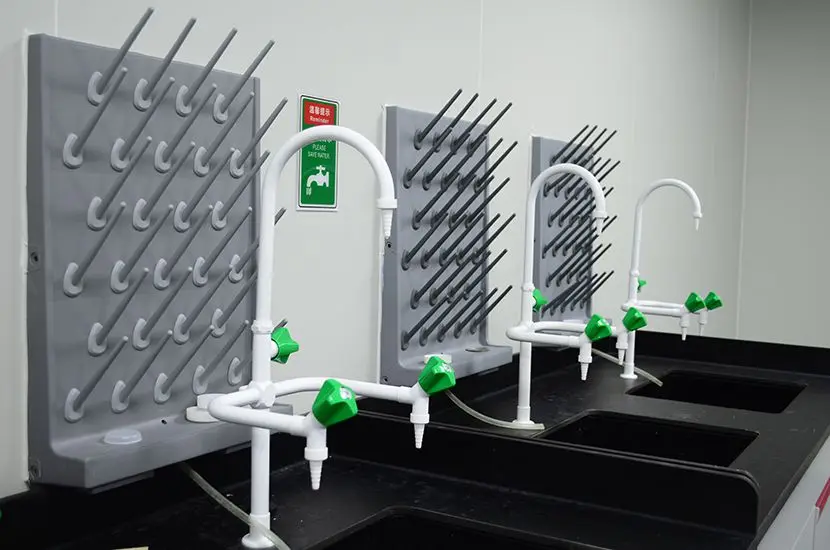
How to get an ASTM F963-23 Test Report?
On January 18, 2024, the U.S. Consumer Product Safety Commission (CPSC) approved ASTM F963-23 as the mandatory product safety standard under 16 CFR 1250, the Toy Safety RegULation. Unless CPSC receives significant objections by February 20, 2024, the standard will take effect on April 20, 2024.
Major Updates
The new ASTM F963-23 standard includes revisions related to heavy metals, phthalates, sound-producing toys, battery accessibility, expanding materials, and traceability labels. The specific updates are as follows:
01. Heavy Metals in Substrate Materials
1) A separate description has been added for exemption conditions to improve clarity.
2) New accessibility determination rules have been introduced, clarifying that paint, coatings, or electroplating are not consideRED barriers. Additionally, if a toy or component covered with fabric is smaller than 5 cm in any dimension, or if the fabric material does not prevent access to internal components under reasonable use and abuse tests, the fabric covering is not considered an inaccessible barrier.
02. Phthalates
The phthalate requirements have been revised, specifying that the following eight phthalates in accessible plastic materials of toys must not exceed 0.1% (1000 ppm), in alignment with 16 CFR 1307:
- Di(2-ethylhexyl) phthalate (DEHP)
- Dibutyl phthalate (DBP)
- Benzyl butyl phthalate (BBP)
- Diisononyl phthalate (DINP)
- Diisobutyl phthalate (DIBP)
- Dipentyl phthalate (DPENP)
- Dihexyl phthalate (DHEXP)
- Dicyclohexyl phthalate (DCHP)
03. Sound-Producing Toys
1) The definition of sound-producing push-and-pull toys has been revised, clarifying the distinction between push-and-pull toys and tabletop, floor, or crib toys.
2) Abuse testing requirements have been added for sound-producing toys intended for children aged 8 years and above. It is now specified that toys intended for children under 14 years old must comply with sound level requirements both before and after use and abuse testing. For toys intended for children aged 8 to 14 years, the testing requirements for children aged 36 to 96 months will apply.
04. Battery-Operated Toys
New requirements have been introduced to enhance battery accessibility safety:
1) Abuse testing is now required for toys intended for children aged 8 years and older.
2) Fasteners on battery compartments must remain intact after abuse testing.
3) Special tools provided to open battery compartments must be mentioned in the instruction manual, advising consumers to:
- Keep the tool for future use.
- Store the tool in a location inaccessible to children.
- Understand that the tool is not a toy.
05. Expanding Materials
1) The scope has been revised to include non-small parts made of expanding materials.
2) An error in the tolerance specifications for test dimensions has been corrected.
06. Projectile Toys
1) The previous requirement for the storage environment of temporary projectile toys has been removed.
2) The order of clauses has been adjusted for improved logical flow.
07. Labeling Requirements
New requirements have been added for traceability labels, mandating that toy products and their packaging must display a traceability label containing the following essential information:
1) Manufacturer or private label brand name.
2) Production location and date.
3) Detailed manufacturing process information, such as batch or run number, or other identifying features.
4) Any additional information that helps determine the product’s specific origin.
08. Instruction Manual
For special tools provided to open battery compartments:
1) Consumers must be reminded to keep the tool for future use.
2) It must be clearly stated that the tool should be stored in a place inaccessible to children.
3) It should be explicitly mentioned that the tool is not a toy.
astm f963-23 testing Process
1. Contact China JJR Laboratory and provide the product manual and images.
2. We will conduct a certification test evaluation based on the relevant market where you intend to sell the product.
3. We will provide the applicable standards and testing costs.
4. Send product samples and complete the payment.
5. Engineers at China JJR Laboratory will conduct the testing.
6. A draft electronic test report will be issued for customer review.
7. A final hard copy of the report will be issued.
Why Choose China JJR Laboratory?
China JJR Laboratory has received CPSC accreditation for ASTM F963-23-related clauses. Additionally, it is an Amazon-authorized testing laboratory, qualified to issue Amazon-recognized CPC (Children’s Product Certificates).
Email:hello@jjrlab.com
Write your message here and send it to us
 Cost of U.S. FDA CFR 21 177.2600 Test Report
Cost of U.S. FDA CFR 21 177.2600 Test Report
 How much does the IP44 Compliance Test cost
How much does the IP44 Compliance Test cost
 What is LFGB Test
What is LFGB Test
 What does LFGB certified mean?
What does LFGB certified mean?
 Weee authorised representative germany
Weee authorised representative germany
 Where to Apply for 2026 Air & Sea Transport Ce
Where to Apply for 2026 Air & Sea Transport Ce
 Guide to IEC Test Reports for Lighting Exports
Guide to IEC Test Reports for Lighting Exports
 IEC/EN 62471 and IEC/EN 62778 (Photobiological Saf
IEC/EN 62471 and IEC/EN 62778 (Photobiological Saf
Leave us a message
24-hour online customer service at any time to respond, so that you worry!




